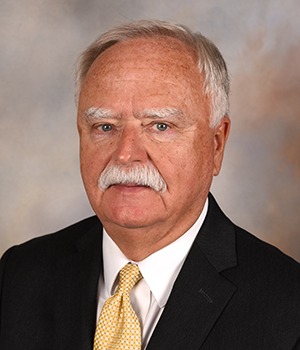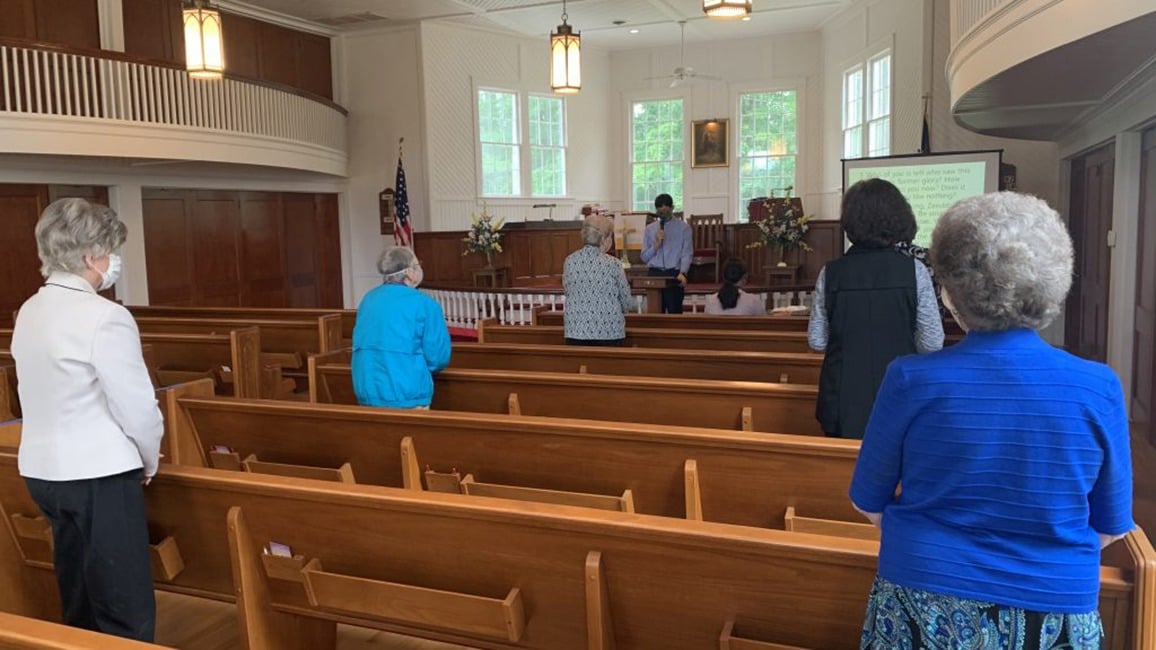Why Covering Up In Church Makes Sense
Rev. Don Underwood offers his reasons for wearing face masks when returning to in-person worship
“Love is patient; love is kind; love is not envious or boastful or arrogant or rude. It does not insist on its own way; it is not irritable or resentful…” (1 Cor. 13: 5, 6)
 For some reason, there appears to be a raging debate over the issue of requiring masks in Phase I openings of in-house worship. Some thoughtful analysis really puts this issue to rest. The following three reasons to require face masks in worship are more than sufficient to make this decision a clear-cut one for both clergy and lay leaders.
For some reason, there appears to be a raging debate over the issue of requiring masks in Phase I openings of in-house worship. Some thoughtful analysis really puts this issue to rest. The following three reasons to require face masks in worship are more than sufficient to make this decision a clear-cut one for both clergy and lay leaders.
- PERSONAL AND PUBLIC SAFETY. The Centers for Disease Control and Prevention, along with nearly every epidemiologist in the United States, recommends the wearing of face masks when in the company of other people because it dramatically reduces the opportunity for the spread of disease. Face masks provide some protection for individual wearers, but they dramatically reduce the chance of transmission if everyone wears them. John Wesley’s first rule was “Do no harm.” This is a simple calculation for those responsible for corporate worship: the wearing of face masks can save lives, and it contributes positively and responsibly in guarding the public health of the community.
- INCLUSIVITY. There are a number of qualifiers for those who are considered part of the “vulnerable” population. These include older individuals, those who are immuno-suppressed (persons receiving chemo, high doses of steroids, etc.), and those with serious underlying conditions (heart disease, hypertension, diabetes, etc.). In each of these categories, which in total likelihood represent a majority of the membership of many congregations, a decision to not require masks is an implicit decision to not invite everyone back to in-house worship. This very concept is anathema to every United Methodist congregation and to the biblical mandate to care for the most vulnerable.
- BRAND. A congregation that decides to not require masks is gambling with its reputation and brand. Even if the possibility of disease transmission is small, any infection linked to the gathering of the congregation will harm the church’s brand for a long time. It will surely cause the church to once again close its in-house worship venue; the challenge of reopening the next time will be much greater; and, when it finally happens, there will inevitably be a demand for mandatory masks. This is in addition to the very real possibility of litigation and a weakened position in defending the litigation when the discovery phase discloses an intentional decision to disregard CDC guidance. Why risk it? Southwest Airlines, along with countless others, knows what it is doing from a business and brand perspective when it requires a mask to board one of its planes.
What is the downside? For those who choose to maintain, for whatever reasons, that masks are ineffective and unnecessary, what is the downside of wearing them for one hour in worship? Is it worth even the slightest possibility that someone might get sick and die? Is it charitable to “insist on my way” when it means excluding cherished brothers and sisters from congregational worship? Is it worth even a slight risk of involving the congregation in contentious and costly litigation?
Rev. Don Underwood is pastor emeritus at Christ UMC Plano.
Published: Tuesday, July 7, 2020

